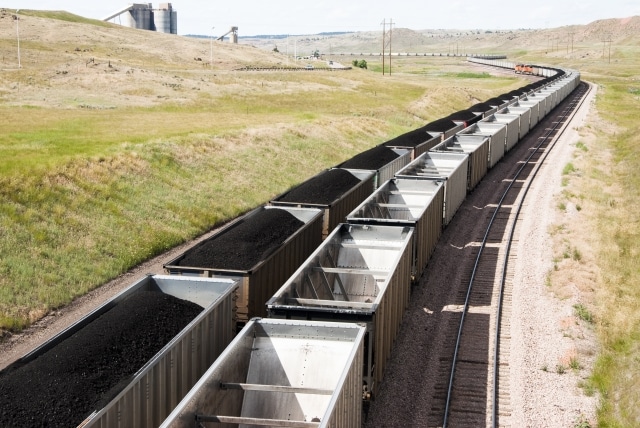This is a guest post by Clark Williams-Derry, crossposted from Sightline.
What a week! The bad financial news for coal export prospects in Washington, Oregon, and BC has come almost too quickly to track. So for those of you who don’t follow the coal press as religiously as I do, here’s a brief summary of all of the goings-on in Northwest coal export finance over the last week or so…
-
Arch Coal’s debt restructuring failed; bankruptcy looms. Arch Coal, one of the two companies trying to develop the Millennium Bulk Logistics coal terminal in Longview, WA, has been in deep financial trouble for a while. They wildly overpaid for coal mines at the peak of the coal bubble. But their bonds are coming due soon, and the company doesn’t have the money to pay them back. So Arch tried to entice bondholders to agree to let Arch pay them less, and pay later; bondholders balked, and blocked the deal. So now the nation’s #2 coal company is close to bankruptcy and effectively cut off from credit markets. Good luck raising the capital to build an enormous coal terminal!
-
The Interior Department is scrutinizing the coal industry’s mine cleanup liabilities. As I wrote back in July, mine cleanup has emerged as a major issue. Federal law requires coal miners to clean up after themselves, but their growing financial challenges are raising the specter that they may not have the money for cleanup. At a Senate hearing earlier this week, a top Interior Department official said that the risk that a coal company bankruptcy could leave taxpayers with cleanup costs is “a serious issue being examined by the Interior Department.” Private reclamation assurance companies (called “sureties”) recently forced Peabody to put up over $120 million to guarantee mine cleanup in some states…but Wyoming state regulators are letting Peabody get away with putting no money aside to clean up Wyoming mines.
-
Canadian coal giant, Teck Coal, admitted that its mines are worth $1.5 billion less than they thought. Teck Coal, which operates in BC and Alberta, and exports through Westshore andRidley, posted a massive $2.1 Billion loss, after writing down the value of its coal mining assets by $1.5 Billion. In the same vein, Peabody coal took a $900 million asset impairment charge back in June, focused on their Australian mines. This raises a major question: when will we see write-downs of US coal mining assets?
-
Cloud Peak has halted coal exports. I wrote about this yesterday, but it’s worth repeating: the only remaining Powder River Basin coal exporter has given up the ghost. The company has negotiated a new deal with BC’s Westshore terminal: they’ll pay Westshore a bunch of money, and Westshore won’t do anything for Cloud Peak. What a deal! The stock market rewarded Cloud Peak for getting the coal export monkey off their backs, but punished Westshore, which fell more than 18 percent after the announcement. Apparently the stock market is realizing that nobody is making money selling coal to Asia.
-
Peabody is trying to wriggle out of paying for retiree health care. One of the major backers of the proposed Gateway Pacific terminal outside of Bellingham, Washington, is trying to dodge responsibility for retired miners’ health insurance. Surprise, surprise. (Just kidding, nobody is surprised.)”
-
A raft of new data suggests that Chinese coal consumption and imports will keep falling. China’s coal imports are down 30% this year, after falling about 10% last year. Total coal consumption is down 5.7 percent, and the nation’s coal plants are running at an average of half of their capacity. See this data-packed article for all the details.
-
Peabody projects that 2016 will be worse for the coal industry than 2015. If you think things can’t get any worse, you’re wrong. The world’s largest private-sector coal company thinks that US coal consumption will fall another 100 million tons next year. Per their Q3 press release: “Peabody expects 2016 utility coal consumption to be below 2015 levels based on current natural gas prices and expected plant closures; these factors more than offset higher capacity utilization within the remaining U.S. coal fleet.”
Image credit: coal train in Wyoming via Shutterstock
Subscribe to our newsletter
Stay up to date with DeSmog news and alerts






